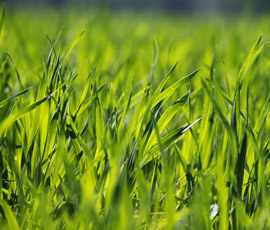US farmers using more pesticides with GM crops

Farmers in the USA have increased their use of pesticides since the introduction of genetically modified crops, according to a new study.
Washington State University professor Charles Benbrook has studied the use of crops that have been genetically modified for resistance to the glyphosate weedkiller, Roundup, produced by US biotech company Monsanto.
Producers of GM crops, such as Monsanto, claim they require less chemicals as plants are engineered to repel crop pests, such as aphids.
But the study, published in the peer-reviewed journal Environmental Sciences Europe, found that the use of herbicides in three GM crops – cotton, soya beans and maize, actually increased in the USA over the past two decades.
Herbicide-tolerant crops worked extremely well in their early years, the study found. But in recent years, so-called “superweeds” have become resistant to glyphosate – Roundup’s main active ingredient.
Superweeds such as horseweed, giant ragweed and pigweed are developing resistance to Roundup (glyphosate) and taking over millions of hectares in the USA.
“Resistant weeds have become a major problem for many farmers reliant on GM crops, and are now driving up the volume of herbicide needed each year by about 25%.”
Professor Charles Benbrook
Since about the year 2000, farmers have used increasing amounts of Roundup and “two or three additional herbicides” to fend off these resistant weeds, said Prof Benbrook.
“Resistant weeds have become a major problem for many farmers reliant on GM crops, and are now driving up the volume of herbicide needed each year by about 25%,” he added.
Prof Benbrook estimated the use of GM crops had increased herbicide use by 239 million kg between 1996 and 2011.
Overall, in this period pesticide use in the USA had increased by an estimated 183 million kg, equivalent to 7%, the study found.
The research would appear to undermine claims from biotech companies, such as Monsanto, that GM crops need less chemicals – one of their major selling points.
Farmers in the UK are banned from growing GM crops for commercial use, but two experimental field trials, of GM potatoes and a trial of GM wheat, began in 2012. GM crops do, however, enter Britain mainly as animal feed.
Monsanto has so far not made an official comment on the findings of the study.
See our page on GM crops

